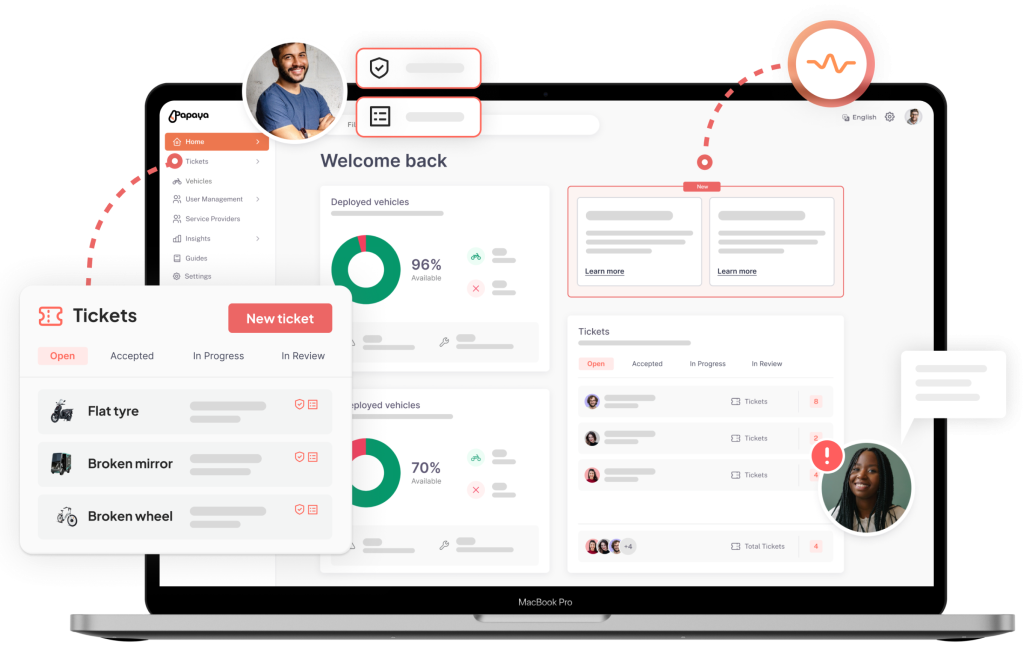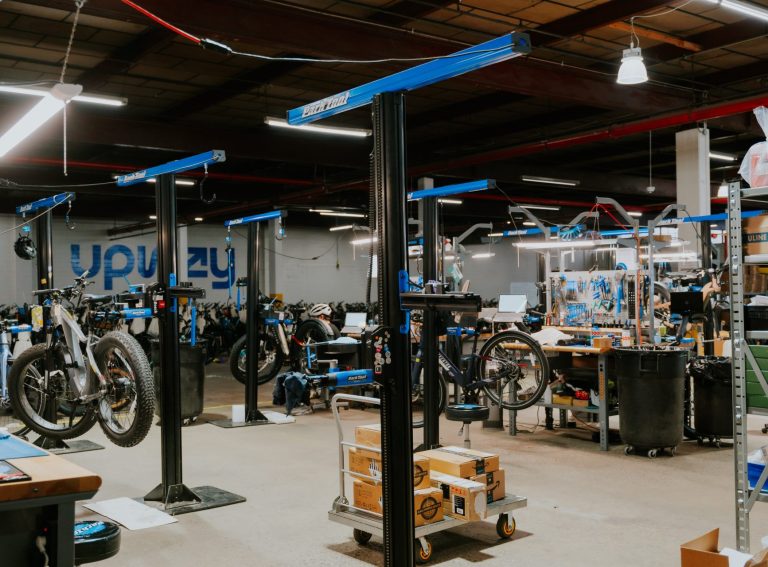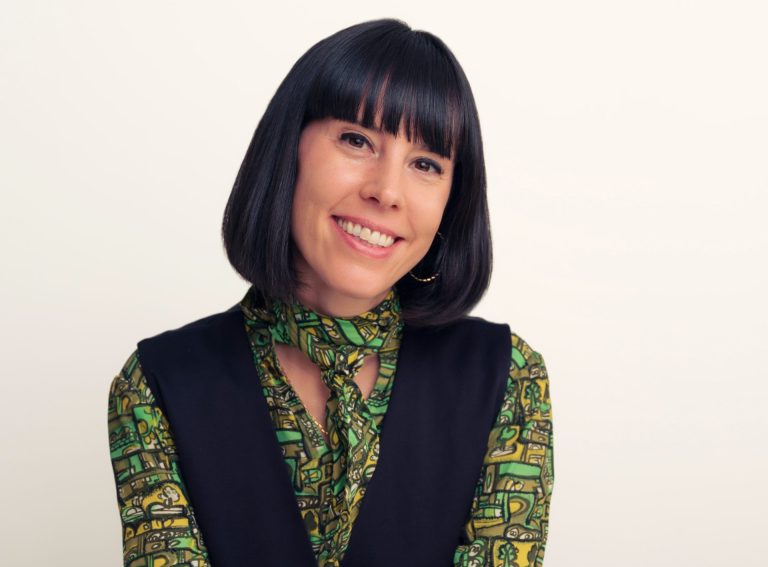On average, every car in the world features a component made by Mubea. The manufacturing giant employs 17,000 people across 54 sites in 15 countries and has an annual turnover of roughly €3bn.
Why we’re interested in them is because the OEM has been developing a U-Mobility division using the Papaya platform as one of its centrepieces.
“With the foundation of U-Mobility we think mobility beyond the automobile”
Mubea has applied its automotive know-how to last-mile logistics by manufacturing three models of cargo bike – the PACK, WORK and PICK-UP.
Operating several fleets and providing sustainable logistics solutions for numerous businesses, it now has more than 500 vehicles on the road in Germany, the Netherlands and the UK.
U-Mobility syncs with Papaya
Stefan Räth joined Mubea in June 2023 when it acquired citkar, the cargo bike manufacturing firm that he co-founded in 2021.
Since the takeover, he has worked as Project Lead within Mubea’s U-Mobility division, primarily focused on its cargo bikes, although the group also designs and manufactures e-scooters and robotic exoskeletons.
To support the running and maintenance of these cargo bike fleets, Mubea has partnered with Papaya, a vehicle management system, marketplace and ecosystem for last-mile sustainable delivery partners.
Managing multiple fleets of up to 25 vehicles inevitably leads to issues such as flat tyres or broken mirrors and so Mubea uses Papaya to classify these issues and determine whether they require immediate attention or not.
“As we are in charge of our customers’ fleets we need to know about the health of each vehicle, be assured that we have the spare parts and can service broken down vehicles,” Räth tells Zag Daily.
“Once a ticket is opened, everyone with access can see the progress of the repairs and we can contact third-party maintenance workers through Papaya if necessary. Using the Papaya platform streamlines information flows and reduces our blind spots.”

Single source of truth
Previously, Mubea employees used WhatsApp messages and excel sheets to manage these breakdowns and maintenance requests, but Räth says that switching over to Papaya helps save several hours of potential downtime a week.
Räth described Papaya’s platform as a “single source of truth”, which helps build trust among the stakeholders involved as no information goes missing. Not only is Mubea able to sell a vehicle to its client, but it can also manage all the communications and interactions with that customer from one central place.
“We made it clear with our partners from the start that we wanted an independent tool that can connect all stakeholders. We have seen service providers come and go and if you just rely on their tool and they go out of business then you’re left with nothing.
“Also, because everything is documented within one independent tool, the operator cannot suggest there was an issue with bike reliability when a rider has an accident,” Räth added.
Expansion potential
In addition to utilising Papaya’s fleet management tools, Mubea’s cargo bikes are now listed on the marketplace. This ecosystem is designed to connect logistics firms and service providers with OEMs in one place.
“The marketplace is still growing but it certainly helps with our visibility,” Räth explains.
“I think it has a lot of potential and as the industry grows it can become really beneficial.
“What has been great is that Papaya has been super agile in responding to new feature requests. This works for both parties as it helps us improve our service and it allows Papaya to offer new tools to other clients.”
One area where Räth would be excited to see even more from Papaya is the development of its IoT feature.
“This could include more advanced vehicle tracking, including mileage for each vehicle and potentially g-force data too,” he says.
“Such a step is not just reliant on Papaya though as the operators and manufacturers would need to enable it, but it would be a pretty important next step.
“This would allow fleet managers to perform preventative maintenance based on what the vehicle mileage or g-force data was telling them, rather than simply following a pre-ordained routine.”
Embracing new technology
When we asked Räth what he thinks would revolutionise fleet management he responded with ‘visualised health timelines’ – a project Papaya is actively working on.
This would enable each maintenance worker to view the vehicle’s full lifecycle, including previous incidents that vehicle had been involved in, as well as repair work already completed.
“Just because the vehicle is involved in a collision it doesn’t mean that it will break,” Räth adds.
“The addition of this kind of mapping would really deepen our understanding.”
Mubea is further hoping to integrate its other partnerships into the Papaya platform to ensure a seamless operation.
“We are partnered with some major corporations that understand the value of putting in place processes that ease friction in operations and I hope that we can collaborate with Papaya and these other partners to streamline all parts of our operation,” Räth concludes.





